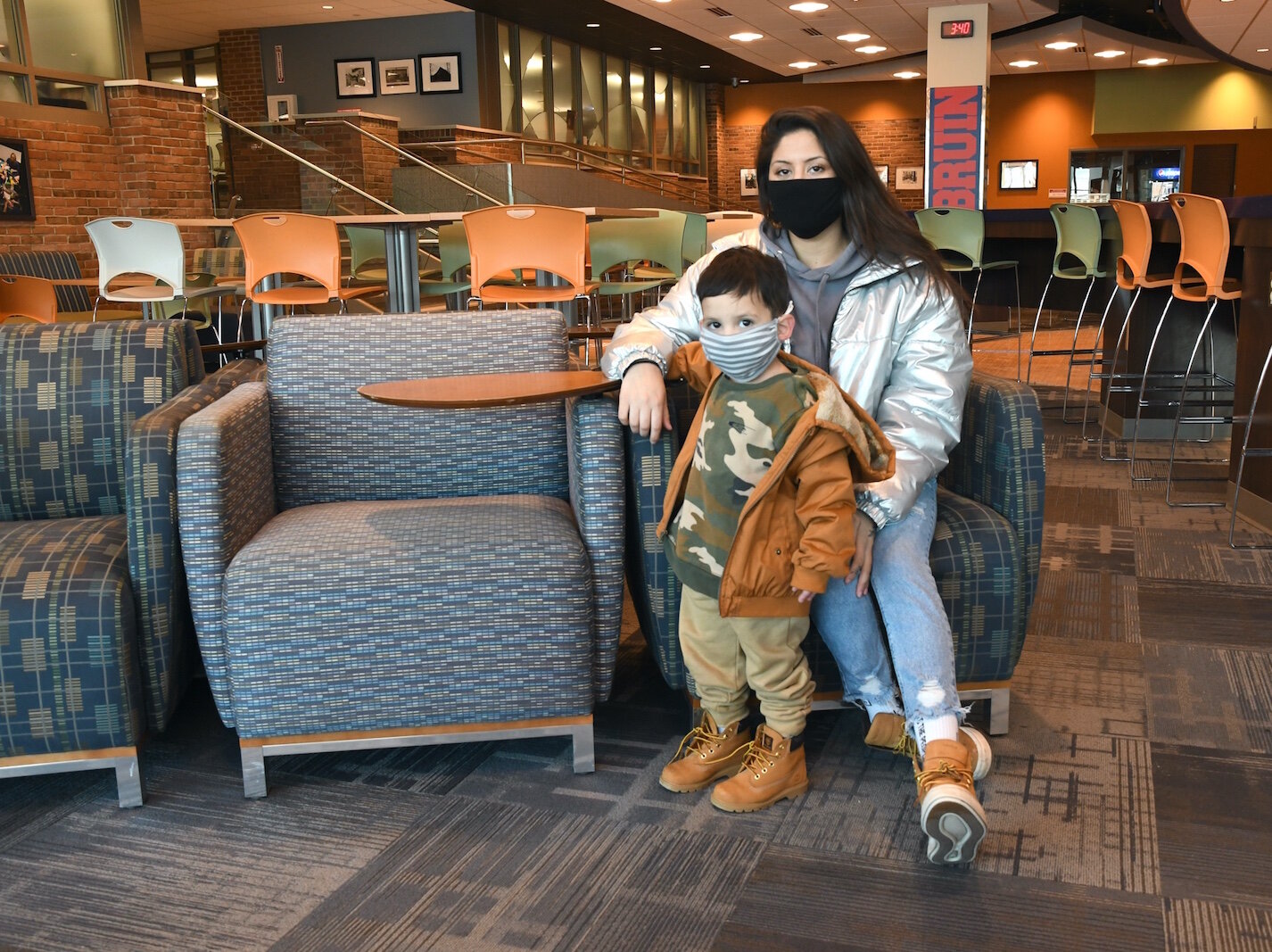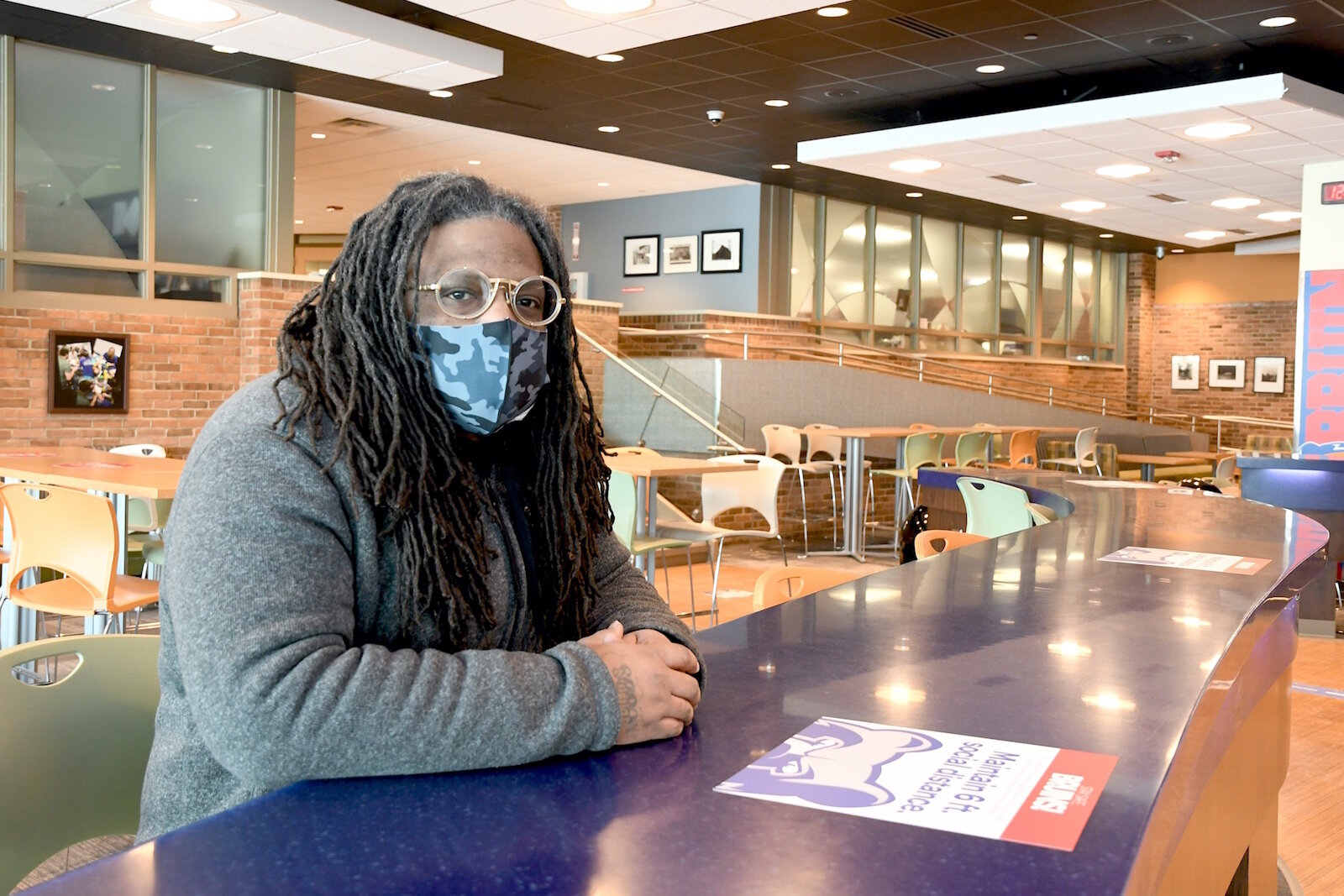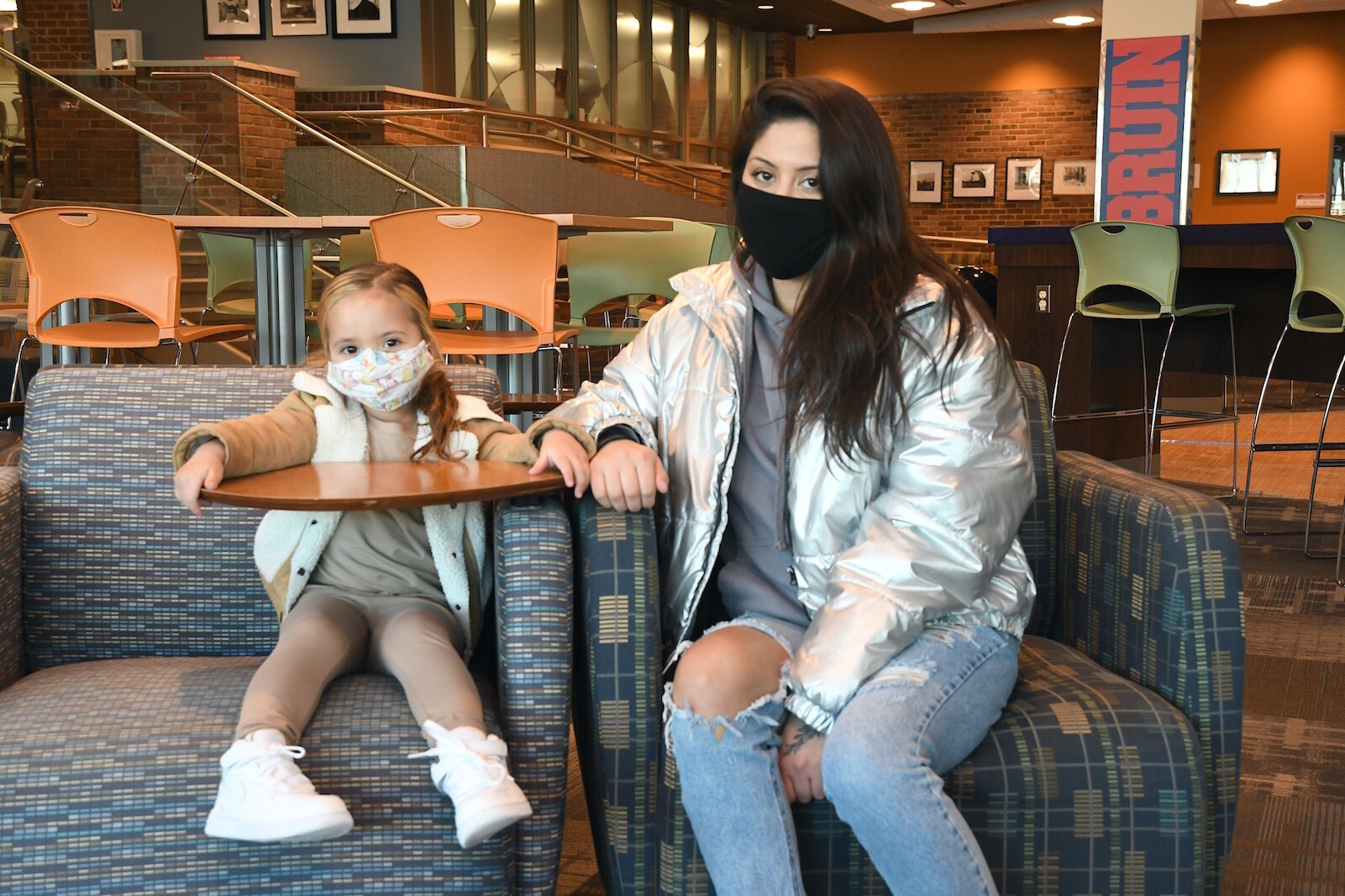The key to unlocking doors previously closed to her is a college degree, says Victoria Ramon-Fox, a Battle Creek resident, educator, a dance instructor and community activist.
She is among a number of individuals here who expect to enroll at Kellogg Community College through the recently-announced Michigan Reconnect program that will give any resident, 25 years and older with a high school diploma or GED, a tuition-free education at any participating community college in Michigan.
Ramon-Fox, an ELL (English Language Learner) support professional with the Lakeview Schools, says she always wanted to continue her education after high school, but life got in the way and she found herself with few options.
“There was personal family stuff and other things going on when I was younger and I moved out of state and wasn’t able to use the Legacy Scholars program and while I was out of state I timed out of it,” she says of the Battle Creek Community Foundation scholarship program. “I already had children by that time and had to work to take care of them. I’ve always worked multiple jobs to be able to take care of things and save money. Now that I have a solid job, it’s put me in a better spot. Working in the education system has given me the ability to do that.”
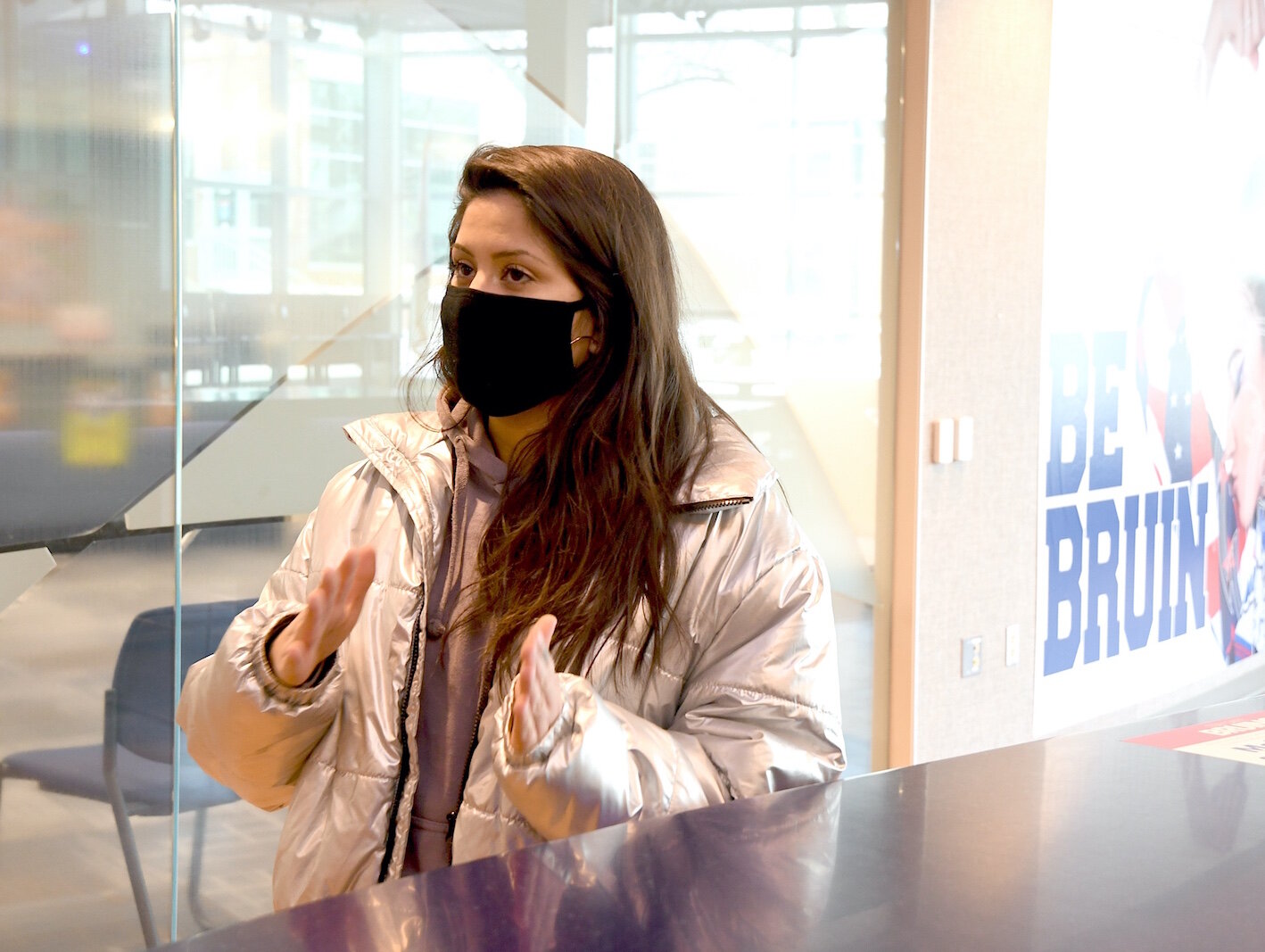
However, her budget continued to fall short of money she could set aside for college.
Michigan Reconnect, she says, “takes the financial burden off of my plate and is giving me room to go back to school full-time or part-time which is important since I work full-time, do advocacy work, and have two kids. I like that it can be flexible now that I have a job and children.”
She plans to get an Associate’s Degree in Education or General Studies and continue on to a four-year college to pursue a Bachelor’s Degree in a program such as Political Science or Linguistics.
“I am hoping to go full-time get a lot of credits in the summer and go part-time in the Fall. I like that it can be flexible now that I have a job and children,” Ramon-Fox says.
Jeff Cotton, who also plans to attend KCC through Michigan Reconnect, has a whole different set of realities to deal with. Cotton is the Community Engagement Manager for On the Ground Battle Creek; a community activist; founder of Big Homies Inc., an organization focused on at-risk youth. He also is an individual who was convicted of a felony at a young age.

Having a criminal record has made it very challenging for him to access employment networks and opportunities that would give him the financial means to pay for college.
With the exception of his contract employment with On the Ground, he works as a volunteer. He is in the process now of securing 501c3 status for Big Homies. He has continued to provide a safe place for at-risk youth, spends countless hours being a support system for them, and providing them with opportunities including workforce development activities and field trips to colleges.
For him, Michigan Reconnect will provide means of meeting his goal of finishing the college degree he began working on while he was serving a 12-year sentence for attempted murder. He was incarcerated at the Michigan Reformatory Prison in Ionia, in 1994, one year after he graduated with his high school diploma from Battle Creek Central High School.
The prison offered college courses taught on-site by instructors with Montcalm Community College and Cotton says he immediately signed up and studied Business Administration. He earned 44 credits and maintained a 3.2 GPA.
“It wasn’t a challenge for me. It was a relief and a natural progression to go from 12th grade to college,” he says. “I have always been a reader and an intellectual.”
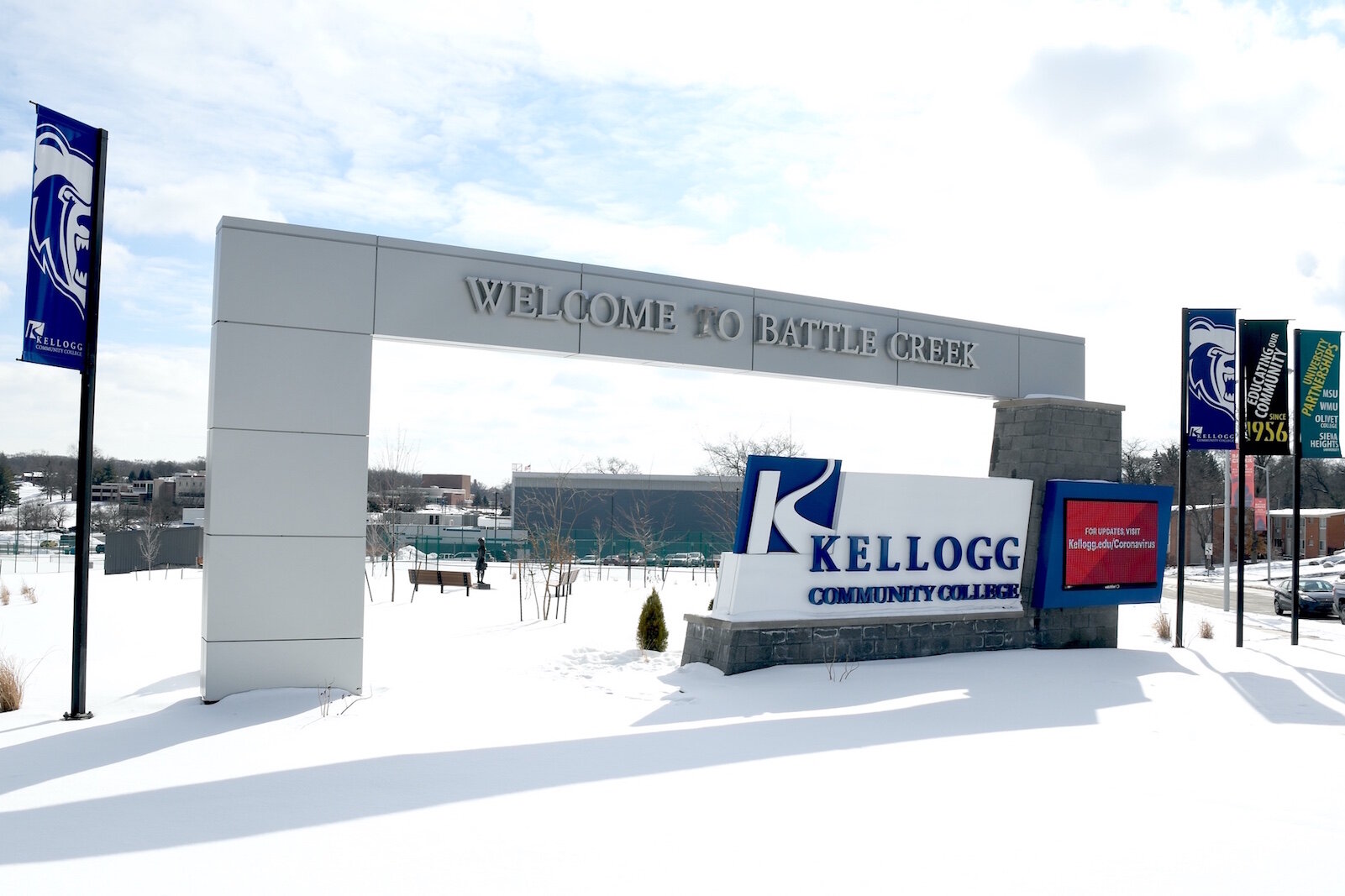
But, the stresses of life as an inmate caught up with him in 1996 and he was put in “the hole” for nine months, an area where prisoners who break the rules find themselves. While there, he was kept in solitary confinement with limited privileges. By the time he re-joined the general prison population, a Crime Bill sponsored by then-Vice President Joe Biden ended college prison programs like the one Cotton was enrolled in.
After serving his time, Cotton took classes at Davenport College in Kalamazoo, but said, “it just didn’t feel right.” He built and opened a recording studio in 2004 in Battle Creek which became the magnet for the at-risk youth that reminded him of himself. He moved to Atlanta when his parole ended and there he met an individual who was getting a lot of people involved in the street culture off of the streets and re-investing that same energy in positive activities.
He came back to Battle Creek and founded Big Homies in 2010, the one constant in a life that has been filled with economic uncertainty because of a criminal record that has limited his job prospects.
“I’m a felon without a degree,” he says matter-of-factly. “For 10 years I’ve been doing Big Homies without funding, but if I was degreed, I would have been strengthening my organization and getting the proper finances to do it. Right now, I wouldn’t be able to afford college without (Michigan Reconnect).”
He’s hopeful that the 44 credits he’s already earned will transfer to KCC where he plans to earn an Associate’s degree in Human Services while also completing his certification in Community Engagement through Neighborhood Works. He already has three of the five certificates required.
Cotton, who is 45-years-old, says he isn’t sure if he’ll go on to a four-year college because he wants to get Big Homies officially established as a nonprofit and concentrate on expanding the work he’s already been doing with youth.
“Getting this degree is a personal goal of mine and really for my own self-fulfillment,” he says. “I’m not going to seek new employment with this degree. I’m hoping it will enrich the community work that I do.”
It’s also for his mother who passed away several years ago. “I’m still trying to do what would make her proud,” Cotton says.
Our Doors Are Open and We Are Ready
Michigan Reconnect is the second tuition-free program introduced by the Whitmer administration since the pandemic established an unwelcome foothold in Michigan in March 2020. The new programs come at a time when the pandemic has resulted in enrollment drops in most colleges and universities statewide.
In April 2020, Whitmer announced the “Futures for Frontliners” program that offered free tuition to individuals working frontline jobs such as grocery store cashiers and janitors who do not have college degrees but are interested in earning one. KCC signed on in July 2020 to begin offering this program, which has since ended.
Eric Greene, KCC’s Vice President for Strategy, Relations and Communications, says the college “picked up several hundred students” through Futures for Frontliners. He says he isn’t sure how many individuals will enroll through Michigan Reconnect, but that KCC does have the capacity and is ready to serve them.
“We absolutely welcome them all to KCC and we have the capacity to educate and serve them,” Greene says. “It’s impossible to tell at this point how many new students we’ll have through Michigan Reconnect and we won’t know until fall arrives and the new semester begins.”
Because the Michigan Reconnect is already open for enrollment, he says he expects to see some of these new students begin their classes in the summer semester. He says it’s possible that new instructors could be hired depending on the number of students who enroll. KCC currently has about 85 full-time instructors and between 200 to 300 adjunct instructors.
“That’ll be done as needed,” Greene says of new hires. “If we have hundreds and thousands of new students we will staff up accordingly. We have a large footprint and we’re able to move pretty quickly to add staff and services. If we have a large influx of first-generation students they may need a little more guidance and assistance on the front end of their college careers.”
Based on what he’s seen, the areas of study chosen will likely continue to be wide-ranging. He says some students will choose to earn a certification in the skilled trades while others will focus on areas including allied health, education, or nursing and choose to go on to a four-year college after getting their Associate’s degree.
As of 2019, only 42% of Michigan’s working-age residents had an associate degree or higher, according to a press release issued by KCC.
“Michiganders without a college degree or training credential often face economic challenges. A 2020 analysis by the American Association of Community Colleges reports the median earnings of full-time employees with a high school degree is $40,510 annually, while those with an associate degree make $50,079 per year, based on U.S. Bureau of Labor Statistics data,” the press release says.
“Michigan employers’ ability to find highly skilled employees is more difficult than ever and is cited as a top concern in the most recent Michigan Future Business Index Report. Michigan Reconnect will help address the dual challenges of the state’s widening talent gap and aging workforce.”
Greene says local employers are telling KCC leadership that they need workers to fill jobs in the skilled and industrial trades areas. These would include jobs involving welding, machining, and robotics.
“They look to organizations like KCC to turn out qualified people,” Greene says.
Skilled certificates are as important or more important than Associates and Bachelor’s degrees, says Joe Sobieralski, President and CEO of Battle Creek Unlimited.
“With Futures for Frontliners and Michigan Connect, they talk about the Associate’s and the Bachelor’s, but there’s also skilled certificates and skilled trades. We don’t necessarily need to focus solely on cranking out people with an Associate’s or Bachelor’s degree. The manufacturing industry has become more complex with higher levels of skills required.”
Many of these jobs pay higher wages, which is good for employees and the community.
“We believe Michigan Reconnect will not only help individuals and families pursue their dreams, but it will also help build a strong economy that requires a talented and modern workforce to compete for the jobs of the future,” says KCC President Dr. Adrien L. Bennings. “KCC has a long history of providing affordable workforce training and transferrable degrees in our service area and the Michigan Reconnect program fits perfectly with our mission as a community college.”
Sobieralski says programs like Michigan Reconnect are an economic development tool as much as an educational tool that will help to retain existing companies in Calhoun County and assist BCU in its efforts to attract new employers because a skilled and educated workforce will already be here.
“When you look at it as an economic development tool, one of the most basic things businesses look at is the demographics and educational attainment numbers when they are looking to locate somewhere,” Sobieralski says.
“Our hope is that the people who earn certificates or degrees through Michigan Reconnect will stay here. If we can keep these people here and they continue skilling themselves up, we become a more attractive location for someone considering moving here or companies looking to expand or stay here.”


